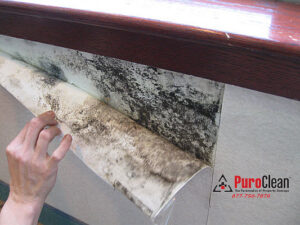Recent scientific research suggests a relationship between chronic fatigue syndrome and mold exposure.
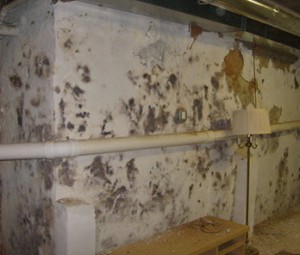

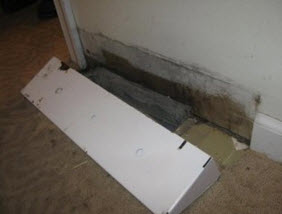

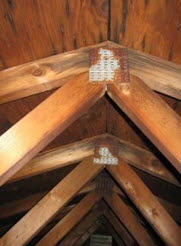
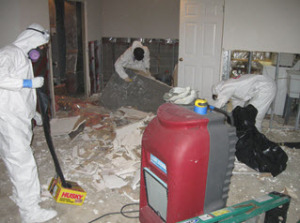
In a previous blog post, the answer to the question “you might have a mold problem if” was answered by visual evidence: mold and mushrooms growing in water damaged buildings that had not been dried and sanitized properly.
But, for many people diagnosed with Chronic Fatigue Syndrome, it may be the mold they can’t see that’s causing their health issues.
What is Chronic Fatigue Syndrome?
The Mayo Clinic Website characterizes Chronic Fatigue Syndrome or CFS is by these 8 symptoms:
Fatigue
Loss of memory or concentration
Sore throat
Enlarged lymph nodes in your neck or armpits
Unexplained muscle pain
Pain that moves from one joint to another without swelling or redness
Headache of a new type, pattern or severity
Unrefreshing sleep
Extreme exhaustion lasting more than 24 hours after physical or mental exercise
Many times, these symptoms have been misdiagnosed as depression. As a result, most often the symptoms have been treated with antidepressant medication, sleeping pills, and psychotherapy.
National health organizations have estimated more than one million Americans and approximately a quarter of a million people in the UK have CFS. However, because the symptoms look like many other illnesses, the actual number of CFS cases may be under-reported.
What’s exciting is that there is a new body of medical research emerging in both the United States and in England suggesting that a diagnosis of Chronic Fatigue Syndrome may be due to mold exposure.
A recent journal article in Toxins (2013, 5, 605-617) “Detection of Mycotoxins in Patients with Chronic Fatigue Syndrome” authors Brewer, Thrasher, Straus, Madison, and Hooper revealed the results of their research into the possible cause of Chronic Fatigue Syndrome (CFS).
The authors tested the urine of 112 patients who had been diagnosed with CFS. 104 of the patients, or 93% of the group, tested positive for mycotoxin exposure. What is even more interesting, is that in this group of individuals who tested positive for mycotoxin exposure, 90% of these patients had been exposed to water damaged buildings – the primary source of mold growth – prior to the onset of symptoms and diagnosis of Chronic Fatigue Syndrome.
In research, there is a cautionary phrase: “correlation does not prove causation.” What this means is that not everyone with CFS will be shown to have mycotoxin metabolites in their urine samples. And, not everyone who has lived or worked in a water damaged building will be diagnosed with CFS.
However, if you have been recently diagnosed with Chronic Fatigue Syndrome, and you have a history of exposure to a water damaged building, either at home or at work, take heart. There are now medical and environmental tests that can point the way to effective treatment – for both you and the home or office environment that may be making you sick.
The best way to get started in treatment is to get tested – both for the indoor environment that may be making you sick and for your body.
In our Greater Philadelphia area to have two of the top professionals in the country who specialize in medical testing and treatment for mold and mycotoxin related illness. These two physicians have the expertise, understanding, and knowledge of mold related illness you need in order to get better.
Armed with the results of the right kind of environmental mold test report, these treatment professionals can design a program that is specific to you and your family so you no longer have to suffer from chronic fatigue syndrome and mold.
Dr. M. Kyu Chung at
Chung institute of Integrative Medicine 856-222-4766
And
Dr. Alan Magaziner at
Magaziner Center for Wellness 856-424-8222
But remember: the source of the mycotoxin exposure has to be removed from the home or work environment.
Professional mold remediation of the water damaged building is necessary to prevent the symptoms of mold sickness and Chronic Fatigue Syndrome from coming back when the medical treatment has been completed.
If you, or someone you know in the Greater Philadelphia and Southern New Jersey region who lives or works in a building that suffered water damage and who has been diagnosed with Chronic Fatigue Syndrome, please give us a call at 877-750-7876.
PuroClean Emergency Recovery Services teams are fully trained in mold removal and remediation, and we follow the IICRC ethical and professional guidelines for the proper remediation of mold.
Water damage happens! The best way to *prevent* mold from growing is to get your home or commercial building clean, dried and sanitized at the first sign of water damage.
Our certified technicians have the training and equipment to respond 24 hours a day, 7 days a week.

